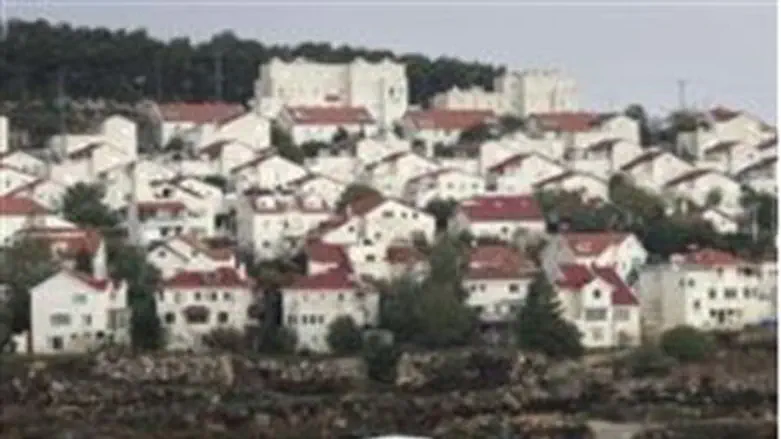
Cabinet Minister Dan Meridor, a member of the seven-member mini-cabinet that makes Israel’s most important decisions and a relatively left-wing member of the nationalist Likud party, says Israel must resume building after the freeze ends in September – but only in places that “will remain part of Israel.”
Meridor visited the city of Efrat in Gush Etzion Tuesday morning and met with Mayor Ofed Revivi. He also paid a visit to the local school, winner of the President’s Prize for Educational Innovation a few days ago.
Among the stops on his itinerary was a neighborhood whose infrastructures are completed but which is not being built because of the ten-month freeze. The Netanyahu government imposed the freeze last November, under intense American pressure, in order to have the Palestinian Authority agree to resume negotiations. In the ensuing seven months, the two sides have had no official contact and barely any indirect contact.
Mayor Revivi told Meridor that “not one single new house has been approved in the past ten years, despite all the politicians’ announcements that Gush Etzion is in the heart of the consensus.” He later explained this startling statement to Israel National News: "Several years ago, the Bush administration requested that Israel inform it before issuing land-sale tenders in Judea and Samaria. This caused Israel not to want to issue any such tenders, and what it did instead was to build only on land owned by the Settlement Division of the Jewish Agency, which did not require tenders - and not on land administered by the Civil Administration. This is why you'll note that the Gush Etzion Regional Council and Efrat Local Council both had more or less the same population ten years ago, while now, Gush Etzion - whose lands are/were administered by the Jewish Agency - has doubled in size, and Efrat, whose lands belong to the Civil Administration, has grown only by 15% at most. And the same is true in other Local Councils, such as Ariel and I believe Beit El as well."
Revivi provided another worrisome statistic showing Efrat's stunted growth: "Ten years ago, our average family size was 4.9, while today it is only 4.1 - meaning that young families are not able to move in and the population is growing older."
Infrastructures Being Wasted
Revivi said that the country has invested 40 million shekels ($10.5 million) in infrastructures, “mainly in the Zayit and Dagan neighborhoods, including roads, and end-points for the water, electricity and sewage systems – but in practice, the State is not allowing us to market houses here. This is a tremendous waste of money, all going to waste because of this freeze.”
Meridor did not take the easy way out. He promised a resumption of construction – but not everywhere. “The freeze ends in three months,” he said, “and from then on, we are not obligated to it. The question is where is it logical and correct to build.”
He said that he proposed that we should build “only in places that will remain a part of Israel, and not in places that will not remain in Israel. There are ministers who think differently; it has not yet come up for debate. We must build wisely, in order that it not be claimed against us that we are harming the negotiations with the [Palestinian Authority].” He did not elaborate about which places he felt would not remain a part of Israel.
Meridor is the eighth Cabinet minister to visit Efrat in recent months. The others, including Moshe Yaalon, Benny Begin, Uzi Landau, Moshe Kachlon and Yaakov Mergi, all spoke out against the freeze and promised to work to end it.